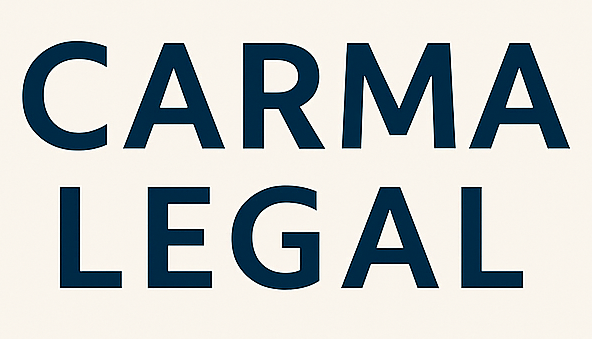When you work with an estate planning lawyer, you gain the guidance and expertise needed to protect your assets, provide for loved ones, and ensure your healthcare and financial wishes are honored. An experienced professional helps you navigate complex state and federal requirements, draft enforceable documents, and implement strategies to avoid probate and minimize tax liability. By partnering with a knowledgeable attorney, you can move forward with confidence knowing your plan reflects your goals and complies with legal standards.
Despite the importance of planning, 67% of Americans do not have an estate plan in place, which can create confusion and added expense for the families they leave behind [1]. As a result, proactive engagement with a qualified advisor is essential. In the sections that follow, you will learn what to expect at each stage—from initial consultation through ongoing maintenance—so you can make informed decisions and secure lasting peace of mind.
Know attorney responsibilities
Role of estate planning attorney
Your estate planning attorney serves as both advisor and advocate, helping you translate personal goals into legally binding documents. They will
- Explain state-specific probate rules and compliance issues, avoiding pitfalls that can invalidate your plan [2]
- Identify tax-saving strategies and trust structures to preserve assets for beneficiaries
- Coordinate with financial advisors, tax professionals, and trustees to create a cohesive plan
- Anticipate potential family disputes, drafting clear instructions to reduce conflict
- Provide ongoing guidance as laws change or your circumstances evolve
By the end of your first meeting, you should understand how your attorney will support you through document preparation, funding trusts, and eventual administration.
Key estate documents
An estate planning lawyer typically helps you create:
- A last will and testament, which sets out asset distribution and appoints an executor [3]
- Revocable and irrevocable trusts to avoid probate and protect assets [4]
- Durable and medical powers of attorney for financial and healthcare decisions [5]
- Advance directives, such as a living will, to specify end-of-life care [6]
- Specialized instruments like special needs trusts or asset protection vehicles [7]
Each document plays a distinct role in your overall plan. Your attorney will tailor these to your family structure, assets, and long-term objectives.
Explore estate planning basics
Understanding wills and trusts
A will is a foundational document that takes effect upon your death, directing how probate assets are distributed. In contrast, trusts can operate during life and avoid probate entirely. Common trust types include:
- Living (revocable) trusts, which you can amend or revoke; they provide flexibility and avoid probate when properly funded [8]
- Irrevocable trusts, which generally cannot be changed once established; they offer stronger asset protection and tax benefits [9]
- Family trusts, which hold assets for multiple generations or protect wealth for heirs [10]
By understanding these differences, you can decide which vehicles align with your desire for privacy, control, and creditor protection.
Powers of attorney and directives
Powers of attorney and healthcare directives ensure that trusted individuals can step in if you become incapacitated. Key instruments include:
- Durable power of attorney for financial matters, granting authority over bank accounts, real estate, and investments [11]
- Medical power of attorney to appoint someone to make healthcare decisions on your behalf [12]
- Living will specifying life-sustaining treatment preferences
- Healthcare directive outlining your values and goals for care [13]
Your attorney will explain state-specific requirements—such as notarization or witness rules—to ensure these documents are enforceable.
Prepare for your meeting
Gather essential documents
To maximize the value of your initial consultation, assemble:
- Lists of real estate holdings, bank accounts, retirement plans, brokerage statements, and life insurance policies
- Titles or deeds for homes, vehicles, and other property
- Current beneficiary designations for IRAs, 401(k)s, and life insurance
- Existing estate planning documents or prior wills and trusts
- Family information, including names and contact details for heirs, guardians, and trustees
Having these on hand lets your attorney assess your estate’s scope and recommend tailored solutions.
Questions to ask
Prepare a list of questions to clarify process, timing, and costs. Consider asking:
- What is your experience with estates of my size and complexity?
- How do you structure fees—flat rate, hourly, or a combination?
- What timeline should I expect for drafting, funding, and execution?
- How often should I review and update my plan?
- What steps are involved in funding a trust or updating beneficiary designations?
A clear understanding of workflow and communication expectations sets the groundwork for a smooth relationship.
Draft key legal documents
Will drafting process
When drafting your will, your attorney will guide you through:
- Identifying assets to include under probate
- Selecting an executor or personal representative to carry out your instructions [14]
- Naming beneficiaries and specifying distribution percentages
- Designating guardians and trustees for minor children or dependents
- Ensuring proper execution, including signing in the presence of at least two witnesses
This structured approach minimizes ambiguity and helps avoid probate court disputes.
Trust creation steps
Setting up a trust involves several stages:
- Drafting the trust agreement, outlining trustee duties and beneficiary rights
- Choosing a reliable trustee—this may be an individual, a bank, or a trust company
- Funding the trust by retitling assets in its name, from real estate to investment accounts
- Executing and notarizing the trust document to meet state law requirements
Your attorney may recommend a revocable trust for flexibility or an irrevocable trust for enhanced protection.
Directive and power of attorney
To prepare for potential incapacity, your lawyer will draft and formalize:
- Durable power of attorney naming your financial agent
- Medical power of attorney appointing a healthcare proxy
- Living will outlining preferences for life-sustaining treatment
- HIPAA release forms to ensure caregivers have access to your medical records
These documents work together to protect you and your family during unexpected health events.
Avoid probate effectively
Living trusts benefits
A properly funded living trust can:
- Keep assets out of probate, reducing delays and court fees
- Maintain privacy, since trust terms are not public record
- Provide seamless management of your affairs if you become incapacitated
- Allow successor trustees to distribute assets without court intervention
Your attorney will explain the steps to transfer titles into the trust and monitor compliance to preserve these benefits.
Asset protection trust options
For clients seeking creditor protection or long-term care planning, an asset protection trust attorney can:
- Establish domestic or offshore trusts designed to shield assets from lawsuits or claims
- Advise on Medicaid-compatible trusts for long-term care without depleting personal wealth
- Coordinate with tax advisors to minimize gift and generation-skipping transfer taxes
These strategies often require precise legal drafting and ongoing trustee oversight to remain effective.
Manage planning costs
Fee structures explained
Attorneys typically offer one of two pricing models:
| Fee type | Typical range | Pros | Cons |
|---|---|---|---|
| Flat fee | $1,500 – $5,000+ | Predictable, encourages completion | May not cover complex revisions |
| Hourly rate | $250 – $350 per hour [15] | Flexible for custom work | Can be unpredictable if plan evolves |
Some firms bundle initial plan drafting with one year of free updates, while others bill a reduced hourly rate for amendments.
Saving money long term
Working with a qualified lawyer can reduce future expenses by:
- Avoiding DIY mistakes that lead to court challenges or invalid documents [2]
- Minimizing estate taxes through trust structures and lifetime gifting
- Limiting probate costs, which can consume 2–7% of an estate’s value
- Protecting beneficiaries from legal disputes that drain estate assets
Investing in professional planning today often yields substantial savings and fewer headaches tomorrow.
Review and update plan
Importance of reviews
Life changes such as marriage, divorce, births, deaths, or significant shifts in asset value warrant a review of your estate plan. Periodic check-ins—every 3 to 5 years or after major events—help ensure that:
- Your documents comply with current laws
- Beneficiary designations reflect your intentions
- Trust funding remains complete and accurate
Failure to update can result in unintended distributions and increased probate risk.
Updating beneficiaries
Remember to revise beneficiary designations for:
- Retirement accounts and life insurance policies
- Payable-on-death and transfer-on-death financial accounts
- Trustee or guardian appointments in wills or trusts
- Powers of attorney and healthcare directives
Coordinate changes with your attorney to confirm that all documents and forms align seamlessly.
Choose specialized counsel
Elder law expertise
If you or a loved one faces age-related healthcare and long-term care concerns, an elder law estate planning lawyer can guide you through:
- Medicaid planning and eligibility
- Guardianship and conservatorship proceedings
- Special elder-care trusts
- Protection against elder abuse and financial exploitation
Their specialized knowledge ensures that your plan addresses both estate and senior-care challenges.
Special needs planning
When you care for a family member with disabilities, a special needs trust lawyer helps you:
- Create a trust that preserves public benefits while providing supplemental support
- Appoint a trustee experienced in managing distributions for special-needs individuals
- Draft letters of intent to communicate personal and medical preferences
- Coordinate with guardians, trustees, and service agencies
Proper planning secures a stable future for your loved one without jeopardizing vital government assistance.
Next steps and resources
Taking action now ensures that your estate plan reflects your wishes and shields your family from unnecessary stress and expense. To get started, gather your documents, prepare questions, and reach out to a comprehensive estate planning lawyer who can guide you through each step. With the right counsel, you will achieve greater confidence, clarity, and peace of mind as you plan for the future.
References
- (Rhodes Law Firm)
- (RKPT)
- (last will and testament attorney)
- (revocable trust lawyer, irrevocable trust attorney)
- (durable power of attorney lawyer, medical power of attorney attorney)
- (advance directive lawyer, living will lawyer)
- (special needs trust lawyer, asset protection trust attorney)
- (living trust attorney)
- (irrevocable trust attorney)
- (family trust attorney)
- (financial power of attorney lawyer)
- (medical power of attorney attorney)
- (healthcare directive lawyer)
- (Sheppard Law Offices)
- (Protective)








